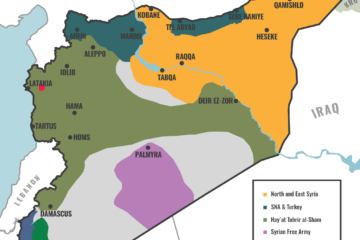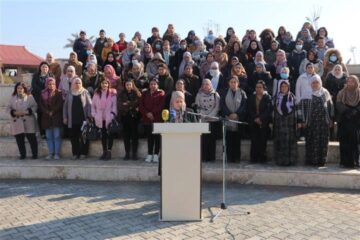Kurdish officials estimate that close to 3 100 Yazidis, men and women, are still held in captivity by Daesh (ISIS), as reported on PJ news:
« It’s been nearly four years since ISIS, in their slash-and-burn campaign across northern Iraq, committed the Sinjar massacre in a genocidal campaign that saw mass executions upon the Yazidis’ refusal to convert and atrocities including burying people alive, starvation, torching of villages, kidnapping women and girls for use as sex slaves, and kidnapping boys as child soldiers.
Nearly 6,500 Yazidis are believed to have been kidnapped by ISIS. Many have been liberated in the campaign by the Syrian Democratic Forces, which includes Yazidi fighters. Rojda Felat, the Kurdish commander who led the SDF forces that took back Raqqa from ISIS, declared at the beginning of the offensive that her goal was to free women enslaved by ISIS, and she reported success in that mission throughout the battle.
At the end of May, the Kurdistan Regional Government counted 3,275 Yazidi rescues, including 2,083 women and girls and 1,292 men.
On Friday, Hussein Qaidi, head of the Yazidi Abductees Affairs Office, told Kurdish NRT TV that nearly 3,100 Yazidis remain in ISIS captivity, roughly split between female and male hostages.
“The main reason that we could not rescue all the abductees is that the Iraqi government has not helped us in this matter. This is a reason why there are still our families in ISIS captivity,” he said.
ISIS calls followers of the ancient gnostic Yazidi faith devil worshippers.
Despite the Iraqi government declaring victory over ISIS several months ago, the security situation and the remnants of war have kept Yazidis from returning to Sinjar.
Al-Arabiya reported that one Yazidi who escaped before ISIS attacked said it’s impossible to return because Sinjar is « completely destroyed and full of diseases resulting from corpses left unburied. » ISIS also left behind land mines. »
The picture of this article shows Rojda Felat, seen through the lenses of Maryam Ashrafi.


